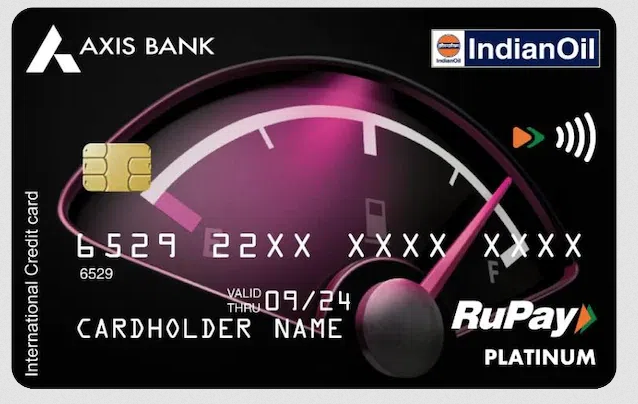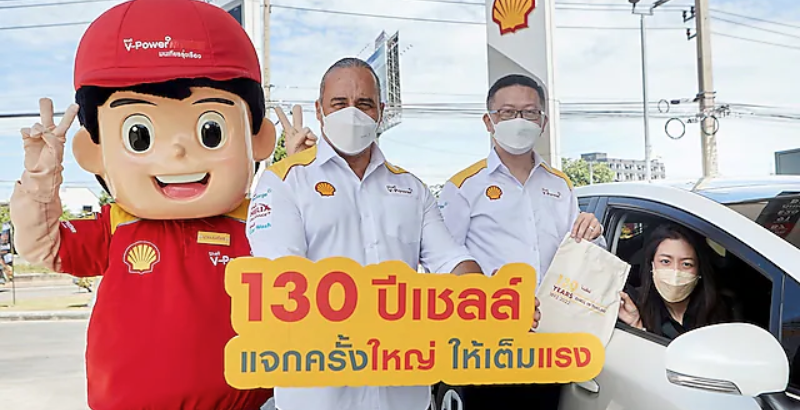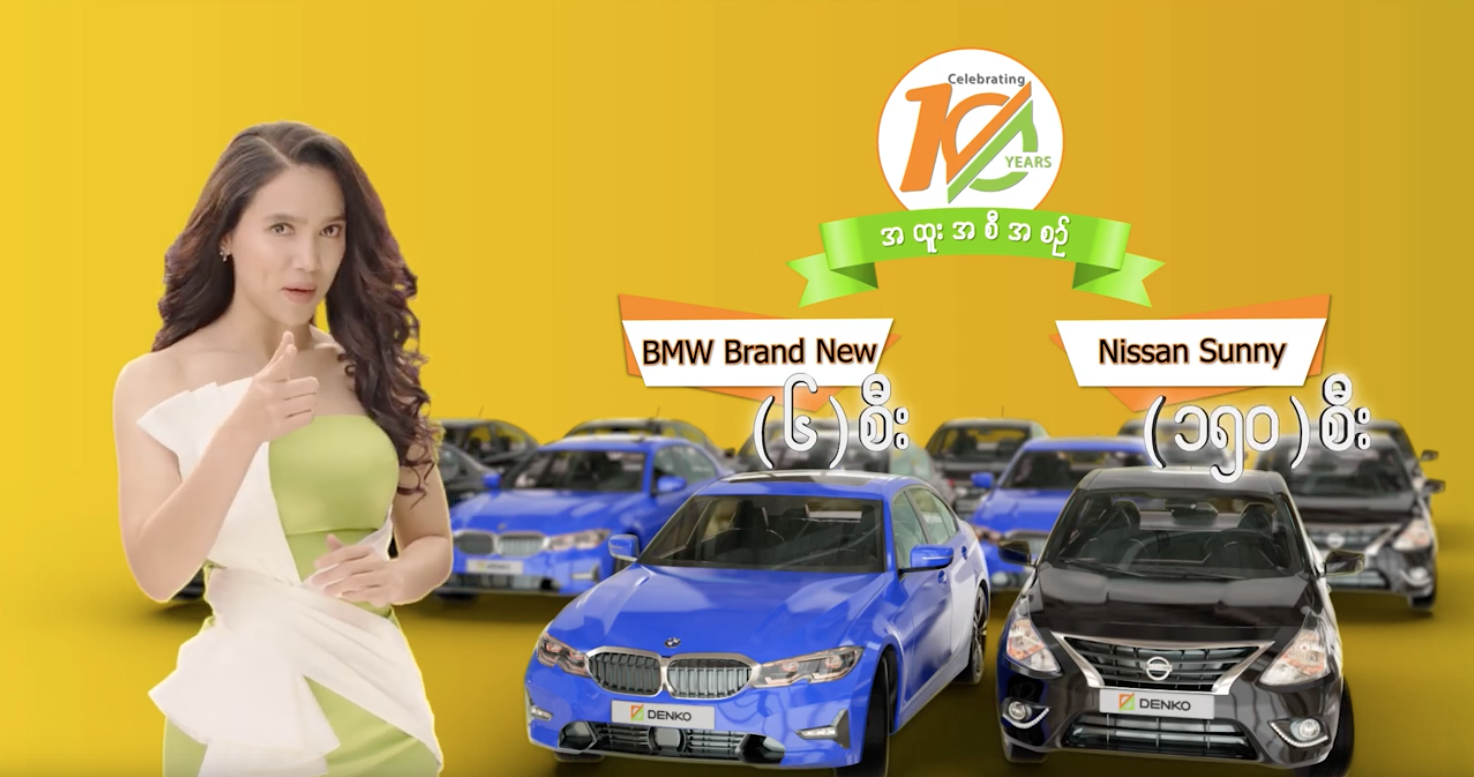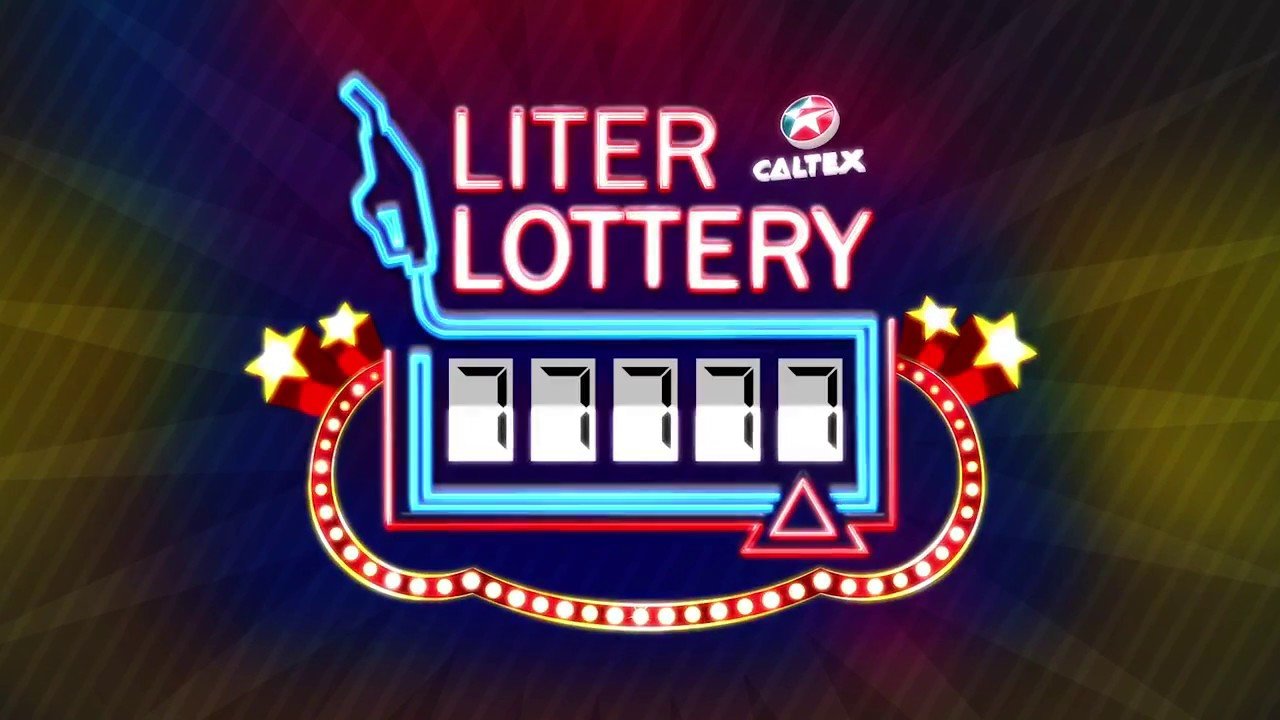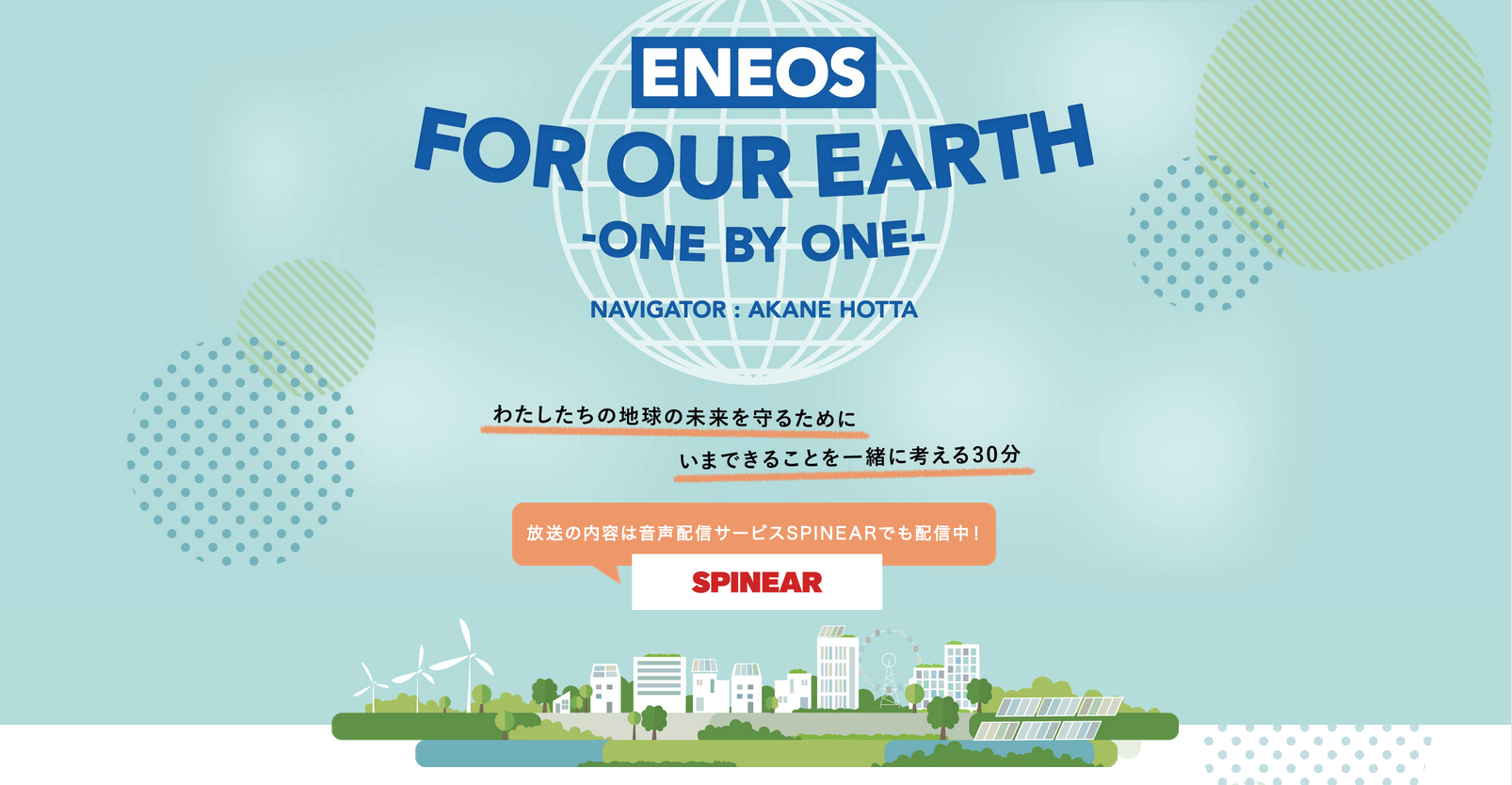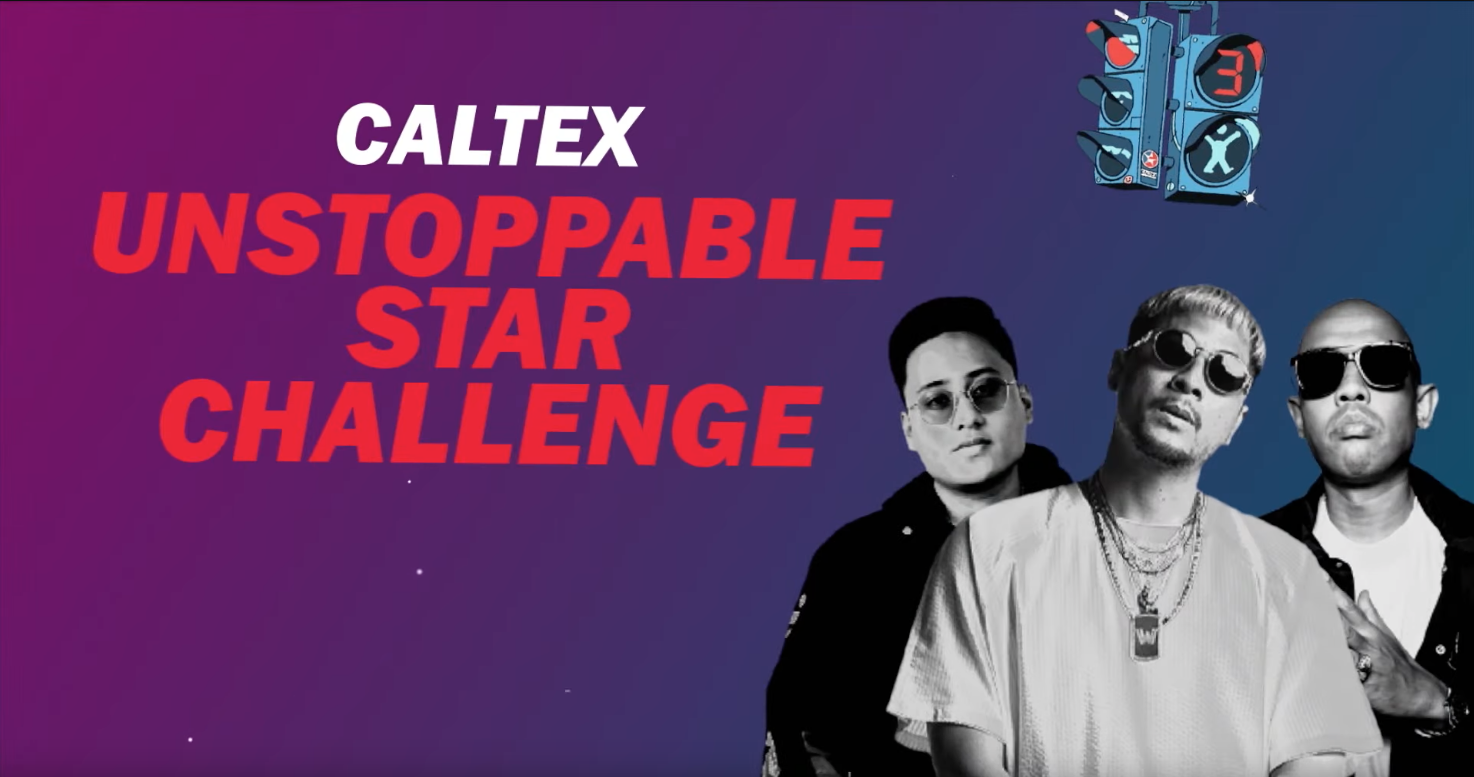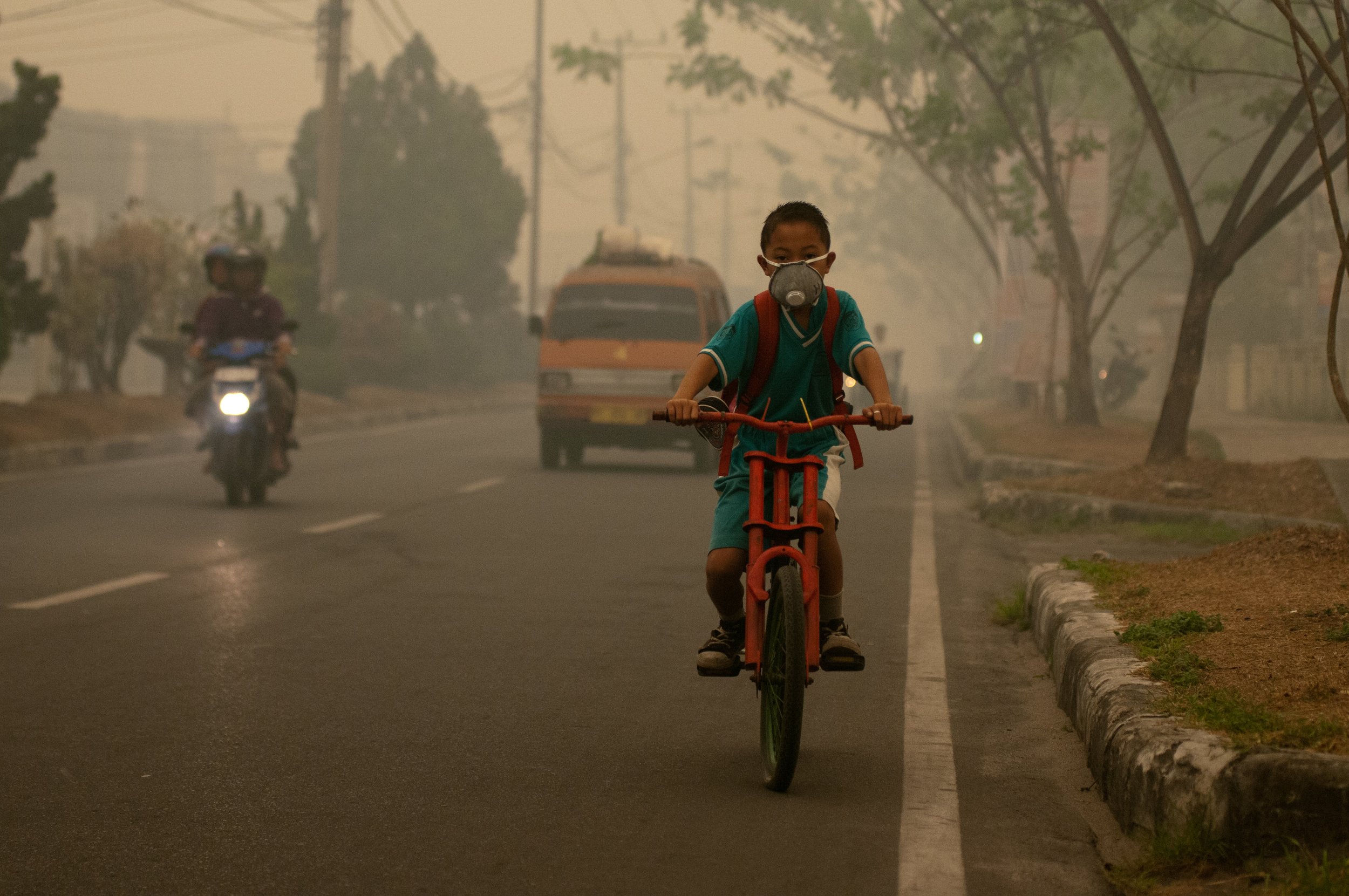
ASIA F-LIST 2023
In March 2023, with the release of the latest IPCC report, scientists issued a final warning for the climate crisis. We are in a state of emergency - but this emergency is not the same everywhere. Some regions will face this crisis sooner, and more profoundly, almost none more than Asia.
The region stands to lose much more than the rest of the world because its geographic features and socioeconomic conditions are especially vulnerable to the effects of climate change. For example, Singapore is heating up twice as fast as the rest of the world. Jakarta, Dhaka, Manila, Ho Chi Minh City and Bangkok are sinking from rising sea levels. Global pollution is responsible for nearly 2.4 million deaths in India and 2.2 million deaths in China every year.
Even though the Global North has a relatively lower population than the rest of the world, it’s responsible for a staggering amount of fossil fuel pollution. Excessive consumption from Western countries is disproportionately impacting the Asia-Pacific region (APAC), which includes some of the world’s poorest and most climate-vulnerable countries.
The 2022 World Inequality Report shows that, since 1850, 27% of carbon emissions have come from North America, 22% from Europe, 11% from China, 9% from South and Southeast Asia, 9% from Russia and Central Asia, 6% from East Asia, 6% from Latin America, 6% from MENA and 4% from Sub-Saharan Africa.
Even though Asia is suffering from climate impacts, over the past few decades, it has become the fastest growing region for fossil fuel production and consumption. Asia’s contribution to global greenhouse gas emissions has doubled from 22% in 1990 to 44% in 2019, faster than the global average.
Writer and Research Director: Nayantara Dutta
Top photo by Aulia Erlangga/CIFOR
Fossil Fuel Companies Are Failing Communities in Asia, and Using Marketing to Shift the Blame
Climate change appears differently in every part of the world, and so do climate deceptions by polluters. For decades, oil and gas companies have disproportionately contributed to the climate crisis but refuse to clean up their mess. Instead, they’ve deceived and gaslit the public by urging them to take individual responsibility for their carbon footprint, when the idea itself was nothing more than a PR campaign created by BP and Ogilvy in the 1970s.
In 2021, fossil fuel companies were responsible for over 90% of global CO2 emissions, but despite knowing the damaging impacts of their products, they’re reaching global limits for extraction and focusing on expansion. It’s time to tell the truth and hold these polluters accountable. We’re starting by exploring their impact in Asia.
In an incredibly diverse region, fossil fuel companies are refusing to take the opportunity to educate consumers about the climate crisis and change their business practices to save the planet. Instead, they are convincing people to buy more and using corporate sustainability efforts to purpose-wash their negative impact on local communities.
We have created this report as the first known research project into fossil fuel advertising in Asia to capture the top trends, campaigns and fossil fuel agency relationships from 2022 and 2023. We believe there is a huge opportunity for clean creativity in this climate-vulnerable region, and we hope this work helps creatives better understand what’s happening in Asia and take action through joining our movement.
The countries in Asia that this report will cover:
Since Asia contains almost 60% of the global population, it is difficult to define or make conclusions about such a diverse region. There are significant differences between developing and developed Asia, and different cultures within the region, and individual countries. Climate action will look very different in each context, but we hope that this report is a starting point for a nuanced conversation.
The countries that we included in our research are:
Hong Kong
India
Indonesia
Japan
Malaysia
Myanmar
Philippines
Singapore
South Korea
Thailand
Vietnam
From here on, we are referring to these countries when we speak of Asia. We chose not to include China in this report, because the unique corporate ownership structures and state of media transparency made it difficult to evaluate the role of agencies in fossil fuel campaigns and acquire the data needed to provide representative case studies.
We have otherwise focused on key markets and regional fossil fuel accounts in 2022 and 2023, but recognize that our research is limited because it does not encompass every circumstance. We have included case studies to provide a local understanding of oil and gas campaigns, so we are able to more accurately represent nuances in each market.
Climate action in Asia:
In Asia, many agencies and PR firms are proud to share their creative work for oil and gas clients. The cultural landscape is quite different to the West, where there is increasing scrutiny and stigma around fossil fuel campaigns, which leads many companies to try to hide their contracts or any conflicts of interest.
Asian consumers tend to be quite loyal towards oil and gas companies, perhaps because fossil fuels have helped the development of many Asian countries. They have helped people without energy access, even as they have endangered our planet. Fossil fuel companies have worked hard to develop these positive associations and, as a result, climate solutions may look very different in the region.
Miseducation is Slowing Down Climate Progress
Although people in Asia have an interest in sustainability, research from Bain & Company shows that there is a gap between sustainable intent and action. 90% of consumers in Asia say they are willing to pay more for products that have a reduced impact on the environment, and even more for healthy products; however, sustainable packaged foods have a relatively small market share. Moreover, 15% of consumers don’t buy sustainable products because of a lack of information or because they don’t trust that sustainable claims are credible.
As this shows, misleading marketing is taking its toll, and people could benefit from more education about sustainability. 70% of consumers were unable to identify products with a lower carbon footprint, despite their education level or history of sustainable goods spending. For example, many believe that a single-use cotton bag is more sustainable than a single-use plastic bag, when the cotton bag is actually less sustainable as it is resource-intensive to produce and would have to be reused 131x to break even. It’s important to give people in Asia the tools and the resources they need to identify greenwashing, so they’re not manipulated by deceptive campaigns by polluters.
Asia’s Focus on Climate Disclosure Must Lead to Regulation
In Asian markets, the most common forms of intervention against greenwashing are a focus on raising awareness and issuing guidelines and recommendations for transparency. We’re seeing a significant increase in climate disclosure requirements, where sustainability reporting has become mandatory in several countries including India, Japan, South Korea, Hong Kong and Singapore, but there are less severe consequences for companies that greenwash.
Gill Wilson, adjunct professor of sustainability marketing, IE Business School in Madrid told Eco Business that “businesses feel under pressure to communicate sustainability to stay competitive, but often lack the knowledge or skills to communicate sustainability credibly, leaving themselves open to greenwashing allegations.” We see this in the marketing industry, where agencies know they must say something but are not always willing to follow up with meaningful climate action.
Several legal and regulatory initiatives in Asia are setting a great example. In January 2023, South Korea became the first nation in East Asia to draft a law to fine companies up to $2300 for greenwashing. In February 2023, the Securities and Exchange Board of India (SEBI) released ESG reporting requirements and in December 2022, Japan proposed a law amendment requiring mandatory ESG disclosures for public companies.
Due to increased scrutiny and surveillance, companies and governments are starting to become aware that they must implement sustainability regulations. Robeco’s 2023 Global Climate Survey shows that 57% of investors in APAC are concerned about political pressure and legal action if they do not act on climate change and other ESG issues, compared to 63% in Europe and 40% in North America. Businesses are starting to improve the quality of their climate disclosures and the conversation is moving forward to hold them accountable.

Fossil Fuel Advertising in Asia
Clean Creatives conducted a qualitative study of fossil fuel advertising in Indonesia, Thailand, Japan, Myanmar, Singapore, South Korea, Vietnam and the Philippines. From this data, we found that campaigns by major polluters can be grouped into two major categories:
Incentivizing customers into buying more.
Purpose-washing so people believe they are doing good.
Buy More: Incentivizing Fuel Purchases
If The Price (And Prizes) Are Right, Consumers Will Buy
Oil and gas companies in Asia often use reward programs and prizes to build brand loyalty. Even though loyalty programs aren’t a new concept, in Asia, many oil and gas companies go one step further and partner with local banks to offer fuel credit cards.
These loyalty cards help people recover some of the costs that come with the price of gas and help fossil fuel companies earn their trust and business. In India, almost every major fuel provider has multiple credit card schemes with different banks, vehicle manufacturers and non-banking financial companies. Hindustan Petroleum offers four different credit card options across three banks and IndianOil has credit card partnerships with four major banks.
When consumers spend on fuel from the company affiliated with their card, they earn fuel reward points in addition to their normal reward points from other purchases, which can be spent to redeem discounts on fuel or other products. This rewards incentive allows oil and gas companies to become top of mind for consumers when making decisions and to establish brand loyalty. Many consumers sign up for fuel credit cards based on their existing relationship with a bank, so a customer’s loyalty to their bank carries over to loyalty with a gas company once they’re using their fuel credit card.
There are loyalty programs in a variety of Asian countries, from oil company PTT and agency CJ WORX’s Blue Card in Thailand to Shell and marketing consultancy Edenred’s ShARe rewards app in the Philippines. Some even have an environmental benefit associated with them, like Cosmo Oil’s Eco Card in Japan, which claims to convert brand loyalty to environmental action by donating 0.1% of your fuel or car wash bill plus 500 yen per customer ($3.64 USD) every year to an environmental conservation fund. Even so, the tiny percentage goes to show that climate action may not be a true priority and any campaigns promoting these cards as a sustainable solution could just be more greenwashing.
Buying Loyalty Through Prize Giveaways
Fossil fuel companies in Asia also use prize campaigns and televised events to incentivize loyalty. Like the lottery, prizes motivate people to spend more on fuel, just in case their loyalty helps them win big. These campaigns are also an easy PR tactic for oil and gas companies to improve their reputation and distract from other issues they may be facing.
Thailand: Shell x Hill+Knowlton Strategies: “Shell 130th Anniversary Mega Lucky Draw”
Shell organized a 130th Anniversary Mega Lucky Draw campaign to show appreciation for its customers through a prize draw where they could win a Porsche, BMW motorbikes, gold bars, gold necklaces, and fuel gift cards. However, in order to participate in the giveaway, customers had to make a purchase at a Shell station within a certain time period.
Myanmar: Denko Trading x Me Entertainment (MRTV): “Denko Lucky Draw”
Denko’s Lucky Draw program produced a red carpet event to celebrate its 10th anniversary through a giveaway for BMW and Nissan cars, which was broadcast as a live TV program hosted by celebrities and followed with an awards ceremony. Like the other giveaways, it incentivised customers to spend money on fuel to enter the competition, with one entry for every 10,000 Kyat ($5 USD) spent.
Philippines: Caltex (Chevron) x VMLY&R: “Liter Lottery”
Caltex put a creative spin on the traditional giveaway with their ‘Liter Lottery’ campaign where customers received a free tank of gas if the last digit of the meter matched the last digit of their license plate. It led to a 233% increase in full tank purchases and increased sales by 198%. The company Seaoil and the agencies David & Golyat and Moving Walls also launched a campaign in the Philippines where customers could win a free lifetime supply of gas, which is now in its sixth year.
Purpose-Washing: Talking Clean, But Acting Dirty
Often, fossil fuel companies use advertising and PR to distract from the reality of their damaging business operations. Through purpose-washing campaigns that focus on positive change like planting trees or teaching children, they mislead people into believing that they are helping the world more than hurting it. Their marketing campaigns also encourage people to feel personally responsible for solving the climate crisis, and take individual actions to clean up the mess that fossil fuel companies created.
Fossil Fuel Companies in Asia are on the Cutting Edge of Shifting Blame:
Fossil fuel companies in Asia also use prize campaigns and televised events to incentivize loyalty. Like the lottery, prizes motivate people to spend more on fuel, just in case their loyalty helps them win big. These campaigns are also an easy PR tactic for oil and gas companies to improve their reputation and distract from other issues they may be facing.
South Korea: GS Caltex x Ideot: “Camouflage English Workbook”
GS Caltex and ad agency Ideot made an English workbook to raise awareness about environmental pollution with consumer-focused solutions like recycling and promoting the company’s “green supply chain”. Since 9 out of 10 Koreans consistently study English, they replaced the normal text in the study material with case studies and exercises showing how they can protect the environment, and distributed the workbook in bookstores and study cafes around South Korea. Through this project, the brand raised awareness of its mission to provide “energy that changes the world”, even though it would be better to take accountability for their contribution to environmental pollution rather than making consumers feel responsible.
India: Adani Electricity: “#ICan”
Similarly, Adani Group, whom The Guardian describes as having “a private sector monopoly on everything from electricity to coal” in India, released a 2021 campaign called #ICan. It urges people to take individual responsibility for how their actions impact the planet, asking the audience “Can you lower your carbon footprint?” and “Can you be a partner in fighting global warming?” Of course, by putting the onus on consumers, Adani Group deflects from answering these questions themselves, especially since the company continues to invest in fossil fuel expansion.
This type of greenwashing is so insidious and deceptive that it’s even won Adani mulitple awards. The campaign asks people to share their ideas on how to reduce greenhouse gas emissions, when a first step would be to divest from Adani’s dirty energy.
Japan: ENEOS For Our Earth Radio Show
Japanese fuel company ENEOS launched a broadcast radio program “For Our Earth: One By One” to spread awareness of the importance of decarbonization and recycling. Hosted by actress Akane Hotta, the program invites celebrity guests to learn about how we can meet the UN’s Sustainable Development Goals. This seems to be an example of virtue signaling — indicating ENEOS’ values without considering whether the company is behaving in service of them.
Indonesia: Pertamina: EcoRun Fest
Every year, the gas company Pertamina organizes the Eco RunFest, a large music festival, run and community market. With the tagline “Running for a Healthier Earth”, the event says that ticket proceeds go towards Pertamina’s Desa Energi Berdikari initiative, which helps rural villages in Indonesia “improve welfare” and use clean energy.
However, to register for the event, consumers must first make a fuel purchase. Pertamina claims that by “purchasing higher quality and environmentally friendly fuel,” people can use their reward points to get a voucher code which they can use on the company website to make their payment and register for the event.
Their claim that fossil fuels are environmentally friendly is greenwash, but the requirement for people to purchase fuel before participating in an event billed to be “Healthy for Earth” is misleading marketing at its finest.
Purposewashing Field Trips:
With many poor rural communities in Asia, companies like to organize projects to show that they’re going to local villages and giving back to the less fortunate. For example, Shell, Chevron and the international NGO Pact in Myanmar organized the 2018 Ahlin Yaung campaign to fund renewable energy and solar projects in 70 rural villages with no electricity. Despite this, Shell was expected to spend $1.2 billion on offshore oil and gas exploration in Myanmar and made a profit of $20.7 million before tax in 2021, its last year in Myanmar before Shell closed down their operations in the country.
PTT and ad agency CJ Worx planted mangroves in 3 provinces in Thailand to restore the ecosystem that had been damaged by climate change, which is ironic since fossil fuel projects would have contributed to that situation.
All Roads Lead to Self-Promotion
Across Asia, many oil and gas companies use road safety as a brand platform to show that they care about consumers while also promoting their fuel. Since these brands have an established history in the market, their marketing campaigns use nostalgic storylines that reinforce family values to convince consumers that they are trustworthy and have their best interests in mind.
Philippines: Petron: “Fuel Wise” and “Lakbay Alalay”
In the Philippines, oil giant Petron launched an advocacy campaign called “Fuel Wise” in 2019 which uses road safety reminders and fuel recommendations to promote safe driving and vehicle maintenance. However, all roads in the campaign lead to the company encouraging consumers to use their fuel. Fuel Wise tips include: “Cheaper price does not guarantee quality” and “Always ask for your receipt.”
Petron also offers a roadside assistance service called “Lakbay Alalay” which has been running for 38 years. It is organized by Petron employees who serve as volunteers at service stations and offer free service checks, medical assistance, restrooms and occasionally free gifts or products. This service is a part of their intergenerational brand campaign “Kasabay sa Lakbay,” which highlights the brand’s 90 year history of being there for Filipino families through nostalgic life experiences from getting married to having a baby. Through these historical campaigns, fossil fuel companies are able to represent themselves as a force for good in consumers’ lives, despite how their products are endangering our future.
Greenwashing The Next Generation
To engage a younger audience, fossil fuel companies are using social media dance and music challenges to go viral.
Multiple: Caltex (Chevron) x VMLY&R x Def Jam South East Asia: “#CaltexUnstoppableStar”
In March 2022, Caltex and VMLY&R announced the #CaltexUnstoppableStar rap challenge to engage fans in Southeast Asia featuring rappers Joe Flizzow (Malaysia), Daboyway (Thailand) and Matthiaos (Philippines). For the campaign, Caltex released an original rap song and invited consumers to sing along and use AR filters to create their own rap videos on TikTok for the chance to win prizes, including Caltex’s Starcash reward points, fuel system cleaner and an iPad.
Even though the song is intended to be catchy, it’s clearly an ad, with lyrics such as “soon as my tank hit ¾ or less, imma hit up the station at Caltex” and “unbeatable mileage, so I took the long way, on the road to success, there’s never a wrong way.” According to Caltex, the campaign received 650 million views in 10 days.
Philippines: Flying V: Mr. and Mrs. Flying V TikTok Challenge and Lipad Jump Shot Photo Contest
To engage with consumers, oil and gas company Flying V in the Philippines released two social media challenges: the Mr. and Mrs. Flying V TikTok dance challenge, which invited customers to share videos of them dancing at the gas station using the brand’s TikTok audio, and the Lipad Jump Shot photo challenge, which asked customers to share photos of them jumping next to a Flying V station. However, to participate, they first had to make a fuel purchase of over PHP 100, with one entry per PHP 100 purchase, which encouraged people to spend more to increase their chances of winning. The best entries received a cash prize of up to PHP 10,000. Since TikTok has led to many products and brands going viral, it makes sense that Flying V would try to create its own trend to increase brand awareness.
Holding Company Agencies
-
PTT Group
-
BP
-
Shell
-
Phoenix Petroleum
-
Shell
-
Indian Oil
-
Petronas
Shell -
Petron Malaysia
-
Saudi Aramco
-
Saudi Aramco
-
ExxonMobil
-
ExxonMobil
-
Cairn Oil & Gas
-
ExxonMobil
-
Bangchak
-
ExxonMobil
-
Gulf Oil
-
Towngas
-
PTT Group
-
PTT Group
-
TotalEnergies
-
Saudi Aramco
-
Equinor
-
Shell
-
BP
-
Indian Oil
-
Chevron
ExxonMobil
Saudi Aramco
Shell -
BP
-
BP
-
BP
-
Castrol
-
PTT Group
-
BP
Chevron (Caltex)
Thai Oil -
CLP Power
TotalEnergies -
Shell
-
Shell
-
Idemitsu Kosan
-
PTT Group
-
Petronas
INDEPENDENT AGENCIES
-
Senoko Energy
-
Petronas
-
Senoko Energy
-
Chubu Electric Power Co.
JERA -
TEPCO Energy Partner Co., Ltd
-
KEPCO
-
SEAOIL Philippines, Inc.
-
City Energy
City-OG Gas Energy Services Pte Ltd -
Petronas
-
Shell
-
Inpex
-
Vedanta
-
Asia Natural Gas & Energy Association (ANGEA)
ExxonMobil -
SEAOIL Philippines, Inc.
-
Indian Oil
-
GAIL
-
Petrovietnam
-
Shell
-
Castrol
Eneos
Shell -
Shell
-
KOGAS
-
Asia Pacific Exploration Consolidated
Chevron
Donggi Senoro
Husky
Otto Energy
Pertamina
PT Nusantara Regas
PTT Group
Santos -
Engle
-
Shell
Pertamina -
Pertamina
-
SEAOIL Philippines Inc.
-
SEAOIL Philippines Inc.
-
Shell
-
GS Caltex (Chevron)
-
Geneco
-
Oil and Natural Gas Corporation (ONGC)
-
Adani Electricity
-
PTT Group
-
Nippon Coke and Engineering
-
Hyundai Oilbank
-
SK Innovation
-
Shell
-
Geneco
-
JERA
-
Shell
-
Chevron
-
Inpex
Download the Asia F-List here:

